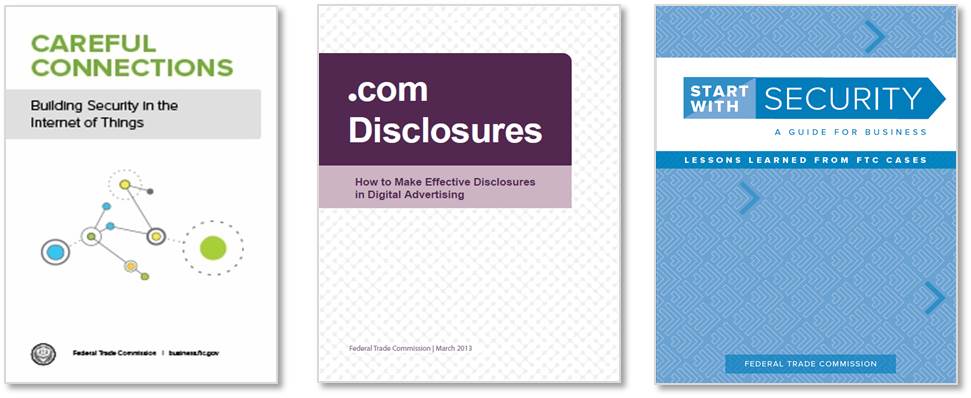Consumers have bought more than 11 million internet-connected Vizio televisions since 2010. But according to a complaint filed by the FTC and the New Jersey Attorney General, consumers didn’t know that while they were watching their TVs, Vizio was watching them. The lawsuit challenges the company’s tracking practices and offers insights into how established consumer protection principles apply to smart technology.
Starting in 2014, Vizio made TVs that automatically tracked what consumers were watching and transmitted that data back to its servers. Vizio even retrofitted older models by installing its tracking software remotely. All of this, the FTC and AG allege, was done without clearly telling consumers or getting their consent.
What did Vizio know about what was going on in the privacy of consumers’ homes? On a second-by-second basis, Vizio collected a selection of pixels on the screen that it matched to a database of TV, movie, and commercial content. What’s more, Vizio identified viewing data from cable or broadband service providers, set-top boxes, streaming devices, DVD players, and over-the-air broadcasts. Add it all up and Vizio captured as many as 100 billion data points each day from millions of TVs.
Vizio then turned that mountain of data into cash by selling consumers’ viewing histories to advertisers and others. And let’s be clear: We’re not talking about summary information about national viewing trends. According to the complaint, Vizio got personal. The company provided consumers’ IP addresses to data aggregators, who then matched the address with an individual consumer or household. Vizio’s contracts with third parties prohibited the re-identification of consumers and households by name, but allowed a host of other personal details – for example, sex, age, income, marital status, household size, education, and home ownership. And Vizio permitted these companies to track and target its consumers across devices.
That’s what Vizio was up to behind the screen, but what was the company telling consumers? Not much, according to the complaint.
Vizio put its tracking functionality behind a setting called “Smart Interactivity.” But the FTC and New Jersey AG say that the generic way the company described that feature – for example, “enables program offers and suggestions” – didn’t give consumers the necessary heads-up to know that Vizio was tracking their TV’s every flicker. (Oh, and the “Smart Interactivity” feature didn’t even provide the promised “program offers and suggestions.”)
The complaint alleges that Vizio engaged in unfair trade practices that violated the FTC Act and were unconscionable under New Jersey law. The complaint also alleges that Vizio failed to adequately disclose the nature of its “Smart Interactivity” feature and misled consumers with its generic name and description.
To settle the case, Vizio has agreed to stop unauthorized tracking, to prominently disclose its TV viewing collection practices, and to get consumers’ express consent before collecting and sharing viewing information. In addition, the company must delete most of the data it collected and put a privacy program in place that evaluates Vizio’s practices and its partners. The order also includes a $1.5 million payment to the FTC and an additional civil penalty to New Jersey for a total of $2.2 million.
Here are tips smart companies take from the latest law enforcement action involving smart products, which were also discussed at the FTC’s recent Smart TV workshop.
- Explain your data collection practices up front. Tell consumers from the outset about the information you intend to collect. Ditch the tech talk and use easy-to-understand language. Especially when explaining new technologies or data collection people may not expect, transparency can be the key to customer loyalty.
- Get consumers’ consent before you collect and share highly specific information about their entertainment preferences. If consumers wouldn’t expect you to be collecting information from them, especially sensitive information, make sure they consent to what you intend to do. The best way to accomplish that is to get their opt-in to the practice – in other words, to express their consent affirmatively.
- Make it easy for consumers to exercise options. Would a function called “Smart Interactivity” that “enables program offers and suggestions” clue consumers in that everything they watch is being collected and shared with third parties? We don’t think so. Companies can hardly claim to offer consumers a choice if the tools necessary to exercise that choice are hard to find or hidden behind plain-vanilla descriptors.
- Established consumer protection principles apply to new technology. FTC guidance documents like Careful Connections: Building Security in the Internet of Things, .com Disclosures: How to Make Effective Disclosures in Digital Advertising, and Start with Security may not have “Smart TV” in the title, but smart businesses look to them for advice on avoiding deceptive or unfair practices.


In reply to This a government by Brian Paone
In reply to At a minimum, they should be by James
In reply to I'm totally dismayed with by Cynthia
In reply to This particular instance of by Craig Rhodes
In reply to How is this any different by Aaron
In reply to How is this any different by Aaron
In reply to Who does the FCC work for? by Erica
In reply to I love how everything now-a by Sigh - Seriously?
Pagination